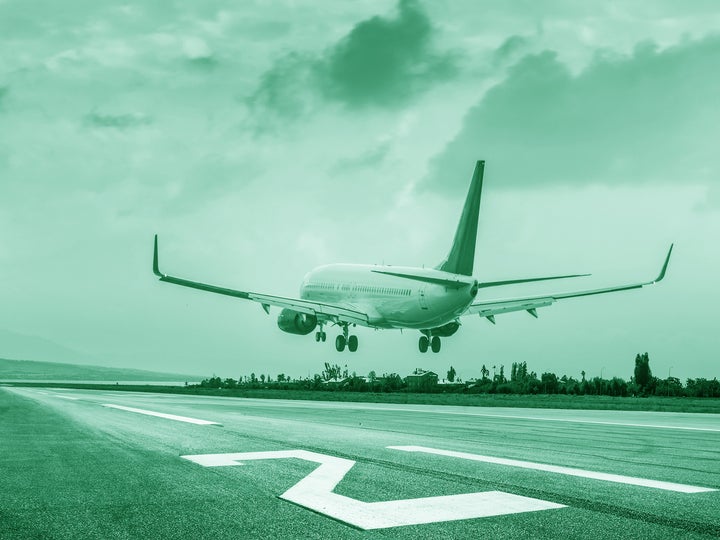Almost 15,000 ‘ghost flights’ have left UK since pandemic began
Ghost flights have sparked backlash as their carbon emissions add to climate crisis

Almost 15,000 “ghost flights” have flown from the UK since the coronavirus pandemic began in March, according to new official data.
These were near-empty or empty flights that took off from airports so that airlines could keep up to their contractual obligations to fly.
The ghost flights operated from 32 airports, with Heathrow topping the list, flying 4,910 international ghost flights between March 2020 and September 2021, according to the data collected by the Civil Aviation Authority (CAA).
Such flights have sparked a backlash from climate campaigners as flying is already one of the most carbon-intensive activities and long-haul flights generate more carbon emissions. Ghost flights also sparked a UK parliamentary petition, demanding to ground unoccupied flights.
An average of 760 ghost flights departed from the UK airports in a month but the data only covered international departures and not domestic flights.
These are flown by airlines purely to hang on to their landing slots at airports, adhering to the 80:20 rule, which requires an airline to use a slot 80 per cent of the time. Any less, and the permit must be handed back.
But after the onset of the pandemic, the British government suspended these rules and airlines were not required to operate empty or almost-empty flights solely to retain the slots. Despite not needing to fly, airlines operated nearly 15,000 flights.
The figures compiled by the CAA till September 2021 were released by parliamentary under-secretary at the Department for Transport, Robert Courts, in response to a question asked by Alex Sobel, Labour MP.
“Departing flights may operate with a low number of passengers for a range of reasons,” Mr Courts said, referring to the changed rules.
“To reduce the risk of airlines operating environmentally damaging empty or near-empty flights, this legislation includes an enhanced justified non-utilisation provision, meaning that airlines will not be required to operate slots where markets are substantively closed to passenger traffic,” he added.
Anna Hughes, director at Flight Free UK, whose parliamentary petition demanding a ban on such flights now has 11,000 signatories, had told The Independent: “If planes continue to fly empty because they are concerned about ‘use it or lose it’ rules, it doesn’t allow the market to adapt to shifting demand.”
“At a time of climate emergency we need to be drastically reducing our use of fossil fuel, not burning it in empty planes,” she told The Guardian.
A recent analysis from Greenpeace warned that more than 100,000 ghost flights will be flown over European skies in winters, doing damage to the climate “equivalent to the yearly emissions of more than 1.4 million cars”.
It extrapolated a warning by German airline Lufthansa that said it would have to operate 18,000 “unnecessary” flights by March to keep all its runway slots.
Climate campaigner Greta Thunberg asserted that “EU surely is in a climate emergency mode” as “Brussels Airlines [part of the Lufthansa group] makes 3,000 unnecessary flights to maintain airport slots”.
Lufthansa, however, said it was trying to do its best to fill its all aircrafts despite struggling to balance Covid chaos and the need to hold on to its slots.
Subscribe to Independent Premium to bookmark this article
Want to bookmark your favourite articles and stories to read or reference later? Start your Independent Premium subscription today.

Join our commenting forum
Join thought-provoking conversations, follow other Independent readers and see their replies